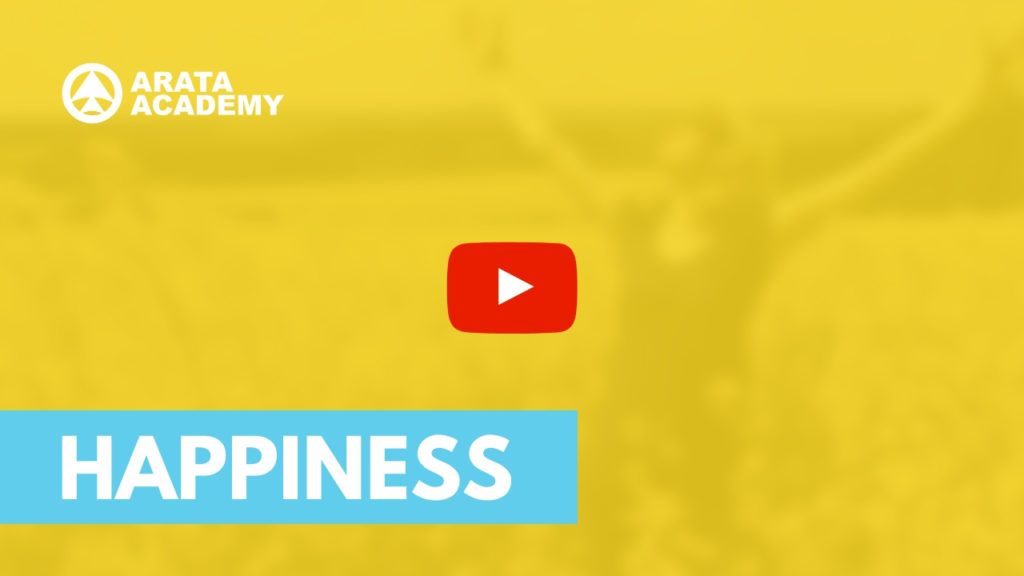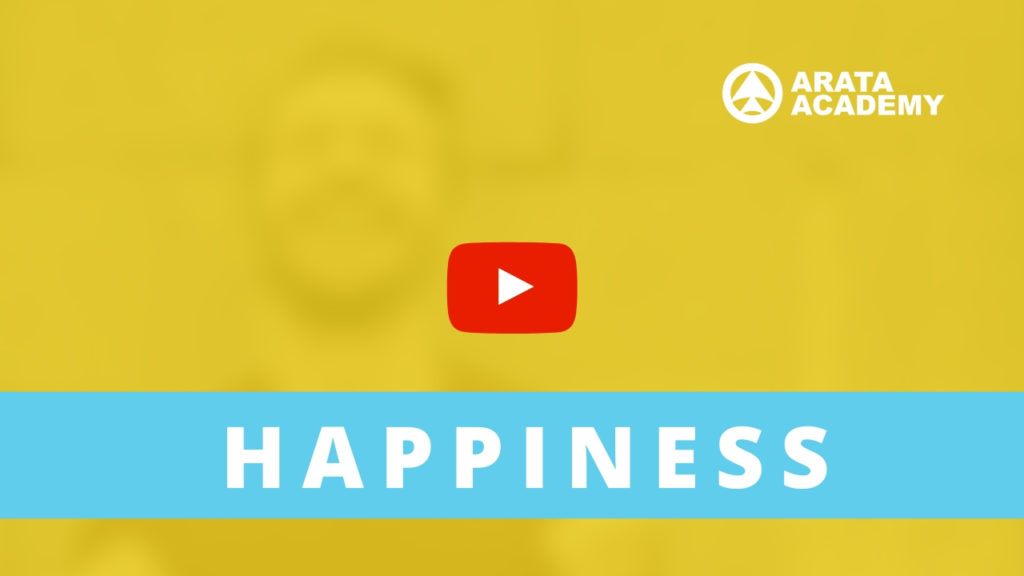Hello! Seiiti Arata. Do you want to improve every day? If so, beware, your desire for improvement could make you unhappy! In the search for personal and professional development, you will encounter some challenges that could make you unhappy, especially when you’re searching for superiority.
Because of that, in order for us to increase our level of happiness, we need to first understand where the need for superiority comes from. We will also understand how this need for superiority causes problems and what we can do to avoid unhappiness.
We seek superiority to get other people’s approval.
We all like to master a skill. Whether it’s cooking, playing football, speaking in public or making complex spreadsheets, we feel good when we know we’re good at something.
By the theory of self-determination, the mastery of skills is one of our most important goals for our psychological well-being. Mastery happens when we can do what we want to do. This is related to another similar need, which is autonomy. It is the freedom to behave as we want.
Studies show that we are happy when we master a skill VERY WELL. But what does it mean to master a skill VERY WELL? How do we know this? One way we use to find out if we are progressing is to compare ourselves with other people.
We seek superiority when we want to be better than others. Some people believe that achieving superiority would increase autonomy, as if you don’t have to depend so much on other people or circumstances of the environment.
We feel good when we are recognized and admired by other people. We seek superiority because we have learned since a young age that self-esteem is linked to how much better or worse we are, compared to other people.
And when we seek superiority, there is a risk of becoming more self-centered, too focused on trying to achieve more and more. We look at ourselves more and more, we focus only on our results. And with that, our relationships are weakened.
When we come in first place in class or win a competition, we earn recognition from some people, but we also receive envy from others. Let’s talk about recognition and envy separately.
Regarding recognition, our parents and teachers say they are proud and admire our talent. This feeds our ego since childhood, in our socialization process.
The danger is getting addicted to the taste of victory. The mistake is that you appreciate yourself only when you are superior to others. And this will cause several problems that we will see shortly.
Comparison with others makes us unhappy because of envy.
As good as you are in an area, there will always be people who are better than you. So it doesn’t seem like a good idea to depend on being the best of all to achieve your happiness. When someone better appears, you will be unhappy.
Social comparisons also diminish happiness by causing a type of rivalry, separation, envy, antagonism against others. We begin to see people as potential rivals. And this is detrimental to our happiness because a good connection with others brings us happiness. And envy is the worst of all these feelings.
Envy is more present in our lives than ever, because of the constant exposure to photos and videos of people on social networks. The content published on social networks seems to rub in our faces that other people are living they way we would like to live. It seems that others are always eating better food, connecting with more interesting people, traveling to more beautiful places, wearing the most elegant clothes and so on.
Envy is a major source of unhappiness for many people today. And envy gets even worse when you start to wish bad things to someone who is apparently better than you. When you secretly wish that your friend who constantly publishes travel photos finally runs out of money.
Say, for example, that you are a very good football player. And you want to participate in a competition to win and feel superior to others. And imagine that you had your brilliant performance overshadowed by another player who outperformed you.
You are likely to be more jealous of that other person if he is from your hometown than if he were from somewhere else in the country. And the envy will be even more intense if that superior person is from your own neighborhood or, even worse, from your own home, like your brother for example.
Envy is strongly related to the desire for superiority. Generally, we are not jealous when those close to us shine in an area in which we are not so interested. So, for example, you wouldn’t be jealous of your brother if he was a math genius, and you are only interested in football.
Seeking superiority with material goods makes you increasingly unhappy.
The need for superiority is also linked to materialism. When you want to be superior to others, it is easier for us to make comparisons in materialistic dimensions. For example, it is not easy to agree on who is the best singer, but it is easy to say which of the singers made the most money, bought the best car or built the biggest house.
When using material measures it is easier to compare who is on top. You compare yourself in terms of wealth or other extrinsic criteria, such as fame, power or status. That is why the need for superiority increases materialism.
And materialism is negative for our happiness because of adaptation. When we move to a bigger house or buy a more sophisticated car, we are happy for that achievement. But that happiness doesn’t last that long. Soon, in a few months, or even a few weeks, we will not even realize that we are living in a bigger house or that we are driving a more sophisticated car. We get used to it! And we will need to move to an even bigger house or get an even more sophisticated car to get the same boost of happiness, and the story, of course, remains the same.
Trying to be superior causes more harm than good.
All the information you learn from following the work of Arata Academy is backed by scientific research. In recent years, positive psychology has improved a lot by conducting researchs to understand what really brings us true happiness. In the Happiness course, I share with you, in a language that is simple to understand and easy to put into practice, some practical exercises for you to implement and increase your happiness levels.
I say this because behavioral science brings facts that are stronger than baseless beliefs. And one of the unsubstantiated beliefs is that the need for superiority is important in order to have grit to do more and thus, be happy. There are even some outdated professionals who still believe in that and who unfortunately do a disservice to the general public by spreading these ideas.
In the case of using the need for superiority to motivate yourself and do what has to be done, this can really help with low complexity activities. In such cases, the desire for superiority, the desire to be better than those around us, can give us the necessary energy to do repetitive tasks that require physical endurance.
The pressure to be the best causes more harm than good. There are other and much better ways for you to motivate yourself to do your job, such as achieving a state of flow. In addition to being more successful in your intellectual task, you also increase your happiness levels.
The search for superiority keeps us from healthy relationships with people around us. It can also feed our ego to depend on the recognition of others and also arouse the envy of others. We ourselves end up cultivating more envy for others when we focus on being better than everyone else. And the need to be superior leads us to materialism, which, in turn, is an endless path. The psychological mechanism of adaptation always makes us want more and more.
All of this takes us away from happiness without realizing it. Many people still believe that the need to be superior is positive in order to have more determination and grit. It seems that they are unaware of something that is much better, the state of flow. The search for superiority increases our stress levels, which in turn reduces the function of the creative part of the brain and thus reduces our intellectual potential. The flow state, on the other hand, does exactly the opposite; it brings us real pleasure and total immersion in the activity we are doing.
If you want to have access to guided activities to increase your happiness, I have something new. Arata Academy is launching a positive psychology course focused exclusively on increasing your happiness levels. It’s the Happiness course. To get to know this new course, access here.

